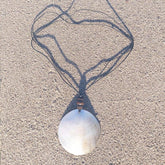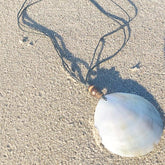A guide to single use plastics
The Environmental Impact of Single-Use Plastics and Alternatives
Learn about the negative impact of single-use plastics and explore sustainable alternatives to reduce your plastic footprint.
Introduction:
In today's modern world, single-use plastics have become an integral part of our daily lives. From plastic bags and water bottles to straws and food packaging, these convenient items have proliferated, causing significant environmental harm. However, it's crucial to understand the detrimental effects of single-use plastics and discover sustainable alternatives to minimize our plastic footprint. In this blog post, we will delve into the environmental impact of single-use plastics and present practical solutions for adopting more sustainable practices.
The impact of single-use plastics on the environment:
Single-use plastics pose a substantial threat to the environment at every stage of their lifecycle. The production of these plastics relies heavily on fossil fuels, contributing to greenhouse gas emissions and climate change. Additionally, once these items are discarded, they often end up in landfills, where they can take hundreds of years to decompose. Alternatively, they may find their way into rivers, lakes, and ultimately, the oceans.
Plastic pollution in our oceans is a pressing issue. It not only harms marine life but also contaminates the water, affecting entire ecosystems. Sea turtles, birds, and marine mammals often mistake plastic debris for food, leading to injury, suffocation, or starvation. Microplastics, tiny particles resulting from the breakdown of larger plastics, have been found in the stomachs of marine organisms, entering the food chain and potentially posing risks to human health.
Sustainable alternatives to single-use plastics:
Fortunately, there are numerous sustainable alternatives available that can help reduce our reliance on single-use plastics. By making simple swaps in our daily lives, we can significantly minimize our plastic footprint. Here are some eco-friendly alternatives to consider:
Reusable water bottles: Instead of purchasing bottled water, opt for a reusable water bottle made from materials like stainless steel or glass. These durable options can be refilled multiple times, reducing the need for single-use plastic bottles.
Reusable cups: Choose cups made from biodegradable materials such as rice husk.
Eco-friendly bags: Bring your own reusable bags when shopping to avoid using plastic bags provided at stores. Look for sturdy bags made from materials like cotton, jute, or recycled fabric.
Compostable food packaging: Choose food packaging made from compostable materials such as plant-based bioplastics or bagasse, a by product of sugarcane processing. These alternatives break down naturally, reducing environmental impact.
Stainless steel or bamboo straws: Skip single-use plastic straws and opt for reusable alternatives made from stainless steel or bamboo. These options are not only eco-friendly but also stylish and durable.
See here for our bamboo & steel Straws.
Beeswax wraps: Replace plastic cling film with beeswax wraps, which are made from cotton fabric coated with beeswax. These wraps are washable, reusable, and an excellent sustainable option for storing food.
See here for our Beewax Food Wraps.
How to reduce your plastic footprint in your daily life:
Reducing your plastic footprint doesn't have to be overwhelming. By implementing a few simple changes in your daily routine, you can make a significant difference. Here are some practical tips:
Carry a reusable water bottle and coffee cup with you to avoid using disposable cups and bottles.
See here for our collection of reusable cups.
Keep reusable bags handy, whether you're grocery shopping or running errands.
See here for our Eco Shopping bags.
Choose products with minimal packaging or packaging made from recyclable materials.
Bring your own reusable cutlery and containers when dining out or ordering takeaway.
See here for our bamboo & stainless steel portable cutlery.
Support businesses that prioritise sustainable practices and offer plastic-free alternatives.
By adopting these practices and encouraging others to do the same, you can contribute to a cleaner and healthier planet.
Conclusion:
The detrimental impact of single-use plastics on the environment cannot be overlooked. However, by embracing sustainable alternatives and reducing our reliance on these items, we can actively work towards a plastic-free future. In this blog post, we've explored the negative impact of single-use plastics and provided tips on how to reduce your plastic footprint in your daily life.












Leave a comment
All blog comments are checked prior to publishing